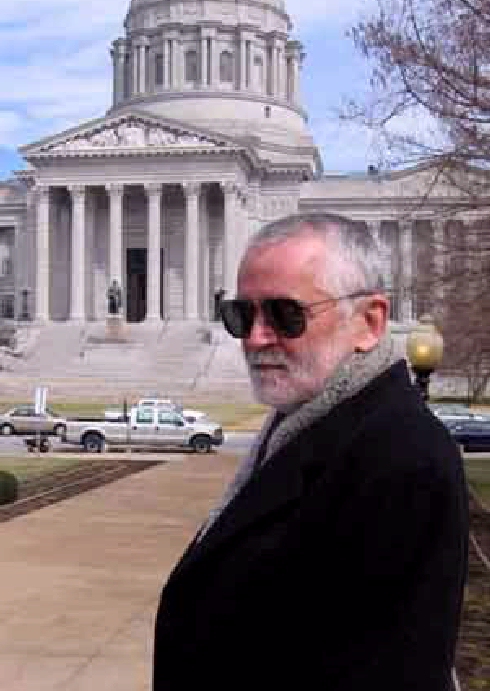®RM75¯®FC¯®MDBO¯COL085 - The Meaning of an Egg®MDNM¯
®FL¯
It was the egg bill that prompted this column.
It started as a simple, although seemingly humorous bill in the Senate to expand the legal definition of an egg.
Of course, chickens make the eggs you eat for breakfast. But it's a bit more complicated.
There are other types of birds, I have learned, that produce eggs that people consume.
Missouri has a number of provisions dealing with food products -- thus the bill to expand the legal definition of an egg.
That would seem a simple issue for the legislature.
But in the closing days of the Missouri legislative session, simple things can become complicated. Trust your lawmakers to even mess with the simple task of defining an egg.
First, the Senate added an amendment dealing with water and sewage district. How does that relate to agriculture, a member asked. The reply: farms use water.
So, the amendment got passed.
If sewage regulation can be added to what started as an egg bill, why not taxes and higher education?
So offered and adopted was an amendment that would allow the creation of taxing districts for University of Missouri Extension Division activities.
Extension, you see, serves rural areas and agriculture. And eggs, of course, come from farms.
The history of the egg bill is an example of a well-used tactic during the closing days of a session to cram issues onto a bill that's moving through to final passage.
Usually, these are issues contained in other bills that had gotten approval by one or both chambers, but had stalled in the process.
These "Christmas tree ornament" amendments usually are the identical versions of provisions that had gotten committee review in a separate bill and, maybe, even a full vote in one of the chambers.
But that is not always the case. Sometimes there can be subtle wording differences that can have substantial consequences. And sometimes, the amendment contains completely new language that represents a last-minute attempt at a compromise.
When there are only days left in the session, lawmakers are under growing pressure to accept an amendment on a sponsor's word that it's OK.
A lobbyist friend of mine complained that this frantic rush to jam unrelated issues into bills leaves too little time to read all the amendments and figure out all the ramifications. If it creates a problem for an experienced lobbyist, think how much more difficult it must be for freshmen legislators and their staff.
As I've written before, it also can lead to legislative disasters.
One year, the legislature accidently repealed the crime of rape. In another year, complete de-regulation of midwifery was snuck through with obscure language added to a huge bill that few, if any, had time to read.
There's also the danger that going too far afield can jeapordize the entire bill.
There have been a couple of court decisions that the legislature cannot amend a bill beyond its original title. You wonder how the courts would rule about sewage and taxes being thrown into a bill with an original title that described it as just "relating to eggs."
Eggs, by the way, have a notorious history in Missouri's Senate.
Back in 1974, the state egg producers association put a hard boiled egg on each senator's chamber desk as a gift.
When the Senate came back into session, a couple of members could not resist an egg toss. Sen. Ed Linehan, who started the antics, missed the return pitch. The egg smashed against the Senate's stone wall.
Even worse, the two engaged in these antics with reporters present, leading to a hilarious story.
It gets worse. I don't remember this part, but the local paper reported that Linehan, angry about the story, walked to the Senate press tabled and smashed down an egg to show his displeasure.
As for this year, don't fret too much about the possibility of eating an unregulated duck egg. On the same day the Senate was messing with eggs, the House passed and sent the governor a simple egg bill that just expanded the definition of an egg.
�
[Phill Brooks has been a Missouri statehouse reporter since 1970, making him dean of the statehouse press corps. He is the statehouse correspondent for KMOX Radio, director of MDN and an emeritus faculty member of the Missouri School of Journalism. He has covered every governor since the late Warren Hearnes.]
 MDN.ORG:
Missouri Digital News
MDN.ORG:
Missouri Digital News

 MDN.ORG
MDN.ORG
 Mo. Digital News
Mo. Digital News
 Missouri Digital News
Missouri Digital News
 MDN.ORG:
Mo. Digital News
MDN.ORG:
Mo. Digital News
 MDN.ORG:
Missouri Digital News
MDN.ORG:
Missouri Digital News

 MDN.ORG:
Missouri Digital News
MDN.ORG:
Missouri Digital News

 MDN.ORG
MDN.ORG
 Mo. Digital News
Mo. Digital News
 Missouri Digital News
Missouri Digital News
 MDN.ORG:
Mo. Digital News
MDN.ORG:
Mo. Digital News
 MDN.ORG:
Missouri Digital News
MDN.ORG:
Missouri Digital News


